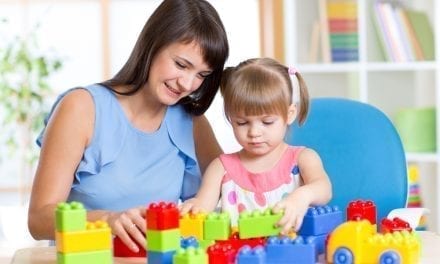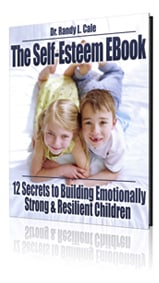Every New Year offers us a chance to take stock of our home and our efforts at building good habits in our children. In particular, it’s good to carefully determine if ‘false hope’ lives in your home, as it will undermine happiness and success. False hope is just that: falsely hoping things will get better.
The problem is that false hope allows us to do NOTHING and still feel good about things. It’s an excuse for inaction when definitive action is needed. As the preeminent source of self-deception, false hope requires that we put our head in the sand, despite the oncoming tsunami.
In this article, I will introduce a simple system that destroys false hope, by bringing more reality-based principles into your home.
Principles Behind The Simple Parenting System
Principle 1: Habits Shape Destinies, So We Must Take Habit-Building Seriously.
Over time, habits get stronger and exert more and more influence. Your child’s good and bad habits will likely stay with them and will point to their destiny. Bad habits are even worse, due to their stickiness. They just seem to stick to us like glue, and in today’s world of ‘instant gratification,’ these bad habits are seemingly encouraged and accepted, at times.
A part of you knows there is a problem stirring. Yet, false hope whispers, “Well, everyone is doing it so it must be okay.” Or perhaps, “They will grow out of it.”
No…not predictably. These are bad habits, and these habits are not likely to change on their own. It’s time to take this seriously and focus on where we can change our parental game plan. Listen to that voice of wisdom: If it looks like a bad habit now, it will look worse in five years.
Principle 2: Abandon Using Better Words. Instead, Lead With Better Action.
If you see the need for real change, to build these better habits, do not pretend that you will accomplish this with better words, or better logic. It won’t happen that way. If words worked to get children into healthy habits, I would be out of business!
What we need is better action…not better words. We can’t teach respect modeling disrespect. We can’t teach responsibility with no game plan for responsibility. We can’t build healthy eaters catering to picky eating habits. In each example, we must look for better action.
Principle 3: Success Leaves Clues.
We do not have to re-invent the wheel when we seek better action. There are many successful models out there, and certain core principles remain consistent. The tendency is to want to do it ‘our way’ — rather than simply seeking to study and model ourselves in the footsteps of success.
Principle 4: We Learn From The Consequences Of Our Choices.
In the world of false hope, kids make poor choices, and there is no consequence. We even go out of our way to protect children from the consequences of their poor choices. It is not the child’s problem that they cannot learn to be better if we parent in this way. The consequence exists to be a TEACHER. Without that teacher, children cannot learn from their choices.
We simply are wired to learn from the consequences of our choices. If we somehow try to ‘out-smart life by protecting our kids from their poor choices, we ‘disable them from the very mechanism that life has provided for learning.
Thus, to get on track with the simple parenting system, we must honor this understanding. Starting today, we begin the habit to stop protecting our children from their poor choices, and we honor the real teachers of the lessons of life: consequences.
Principle 5: Work, Then Play—But Only Every Single Day.
To build the habit of responsibility, we cannot lecture this into our children. We must build it into their very neurology, through daily practice. The most powerful way to do this is through the habit of requiring responsible action EVERY DAY, before getting to play. You do this not by lecture, but by withholding the ‘Play’ until the ‘Work’ is done.
This ‘Work, Then Play’ approach has been proven to build healthy habits. It honors teaching your children about reality, gets you into action mode, and requires you to never endorse false hope. You do not hope their room is really picked up before going out to play, you inspect their room. You don’t even necessarily believe them when they say the homework is done, instead… you review it. If it’s done, they get the Ipad, the phone, or their other goodies. If not, no goodies. It’s that simple.
Principle 6: Talk is Cheap.
Remember to avoid the talk, the reminders, the lectures, and all those endless pointers. Let the leverage do the work here by keeping principle 5 alive in your home. It’s your secret weapon to both get results and build independence.
This brings you and your home into a reality-based system, where you establish this daily habit as the foundation behind all your decisions. You will see responsible habits explode in the weeks ahead if you stick with the plan.















